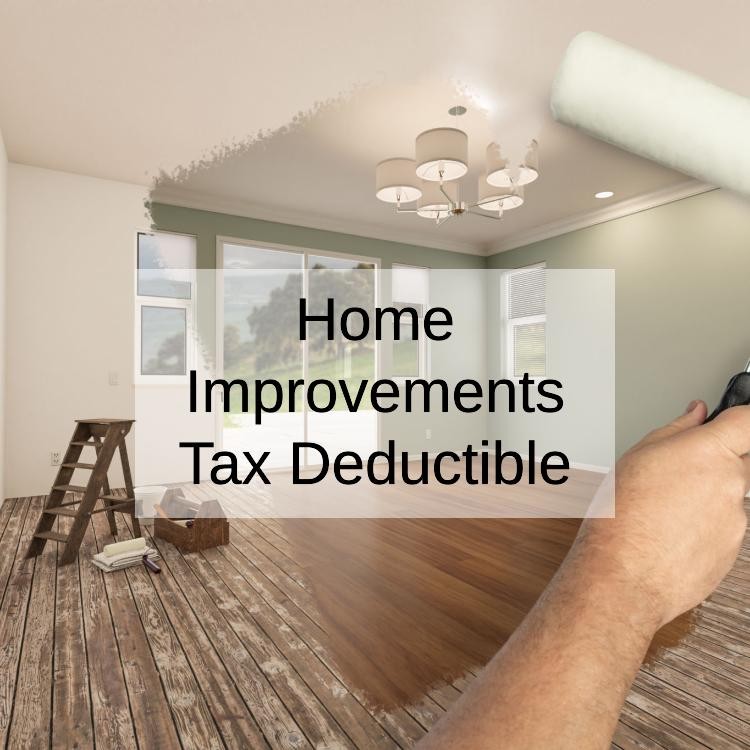Undertaking loans for home improvement not only enhances your living space but may also impact your tax situation. Homeowners often wonder if the costs incurred for home renovations or upgrades are tax-deductible. In this comprehensive guide, we'll delve into the intricacies of home improvements and their tax implications, helping you understand the nuances and make informed decisions about your property.
Understanding Tax Deductibility
What Home Improvements Are Tax Deductible?
Not all home improvements qualify for tax deductions. Generally, improvements that increase the value of your home or extend its useful life are not immediately deductible. However, certain renovations, such as those related to energy efficiency or medical necessity, may be eligible for tax benefits.
Deductible Home Improvement Expenses
Explore specific evergreen home loans improvement expenses that might be tax-deductible, such as energy-efficient upgrades, home office renovations, medical-related modifications, and improvements made for rental properties. Understanding these distinctions is crucial for maximizing potential tax benefits.
Energy-Efficient Home Improvements
Tax Credits for Energy-Efficient Upgrades
The government encourages energy efficiency by offering tax credits for certain home improvements. Explore the types of upgrades that qualify for these credits, such as solar panels, energy-efficient windows, doors, and insulation. Learn about eligibility criteria and the potential impact on your tax liability.
Energy-Efficient Appliances and Systems
Consider replacing outdated appliances and systems with energy-efficient alternatives. Understand which purchases may qualify for tax credits and how these improvements contribute not only to your home's sustainability but also to potential tax savings.
Home Office Renovations
Deducting Home Office Expenses
With an increasing number of individuals working from home, home office renovations have become prevalent. Discover the rules surrounding the deduction of home office expenses, including home renovation loan or improvements made to create a functional and productive workspace.
Qualifying for Home Office Deductions
Learn about the criteria for claiming home office deductions, including the exclusive and regular use of the space for business purposes. Explore the depreciation of home office improvements and the nuances of claiming these deductions in alignment with tax regulations.
Medical-Related Home Improvements
Accessibility Modifications
Certain home improvements aimed at enhancing accessibility for individuals with disabilities may be eligible for tax deductions. Explore the types of modifications that qualify and the specific criteria for claiming these deductions.
Documentation and Eligibility
Understand the importance of proper documentation when claiming medical-related home improvement deductions. Explore the eligibility criteria, including the necessity of improvements for medical reasons, and ensure compliance with tax regulations.
Improvements for Rental Properties
Deductible Improvements for Rental Properties
If you own rental properties, certain improvements may be tax-deductible. Explore the distinctions between repairs and improvements, and understand how these expenses can impact your tax liability. Learn about capitalization rules and the nuances of deducting improvement costs for rental properties.
Recordkeeping for Rental Property Improvements
Proper recordkeeping is essential when it comes to deductible improvements for rental properties. Explore best practices for documenting expenses, understanding the depreciation of improvements, and ensuring compliance with tax regulations for rental property owners.
Non-Deductible Home Improvements
Home Improvements That Are Not Tax-Deductible
Not all home improvements offer tax benefits. Understand which renovations or upgrades fall into the category of non-deductible expenses. By recognizing these distinctions, first time home owners loans can manage expectations and plan their home improvement projects accordingly.
Personal Taste vs. Tax Benefits
Balancing personal taste and potential tax benefits is a key consideration when planning home improvements. Explore scenarios where personal preferences may outweigh tax considerations and vice versa, helping homeowners make informed decisions aligned with their goals.
Consultation with Tax Professionals
Importance of Professional Advice
Given the complexity of tax regulations and the evolving nature of deductions, consulting with tax professionals is crucial. Understand the role of tax advisors in navigating the intricacies of home improvement deductions, ensuring accurate filings, and maximizing potential tax benefits.
Keeping Abreast of Tax Law Changes
Tax laws are subject to change, impacting the deductibility of home improvements. Discover the importance of staying informed about updates to tax regulations and how proactive measures, such as regular consultations with tax professionals, can help homeowners adapt to evolving tax landscapes.
Making Informed Decisions
Navigating the tax implications of home improvements requires a nuanced understanding of deductibility criteria and regulations. By exploring the various categories of deductible and non-deductible home improvements, homeowners can make informed decisions, maximize potential tax benefits, and enhance their living spaces with confidence.
The Intersection of Homeownership and Tax Planning
Home improvements and tax planning intersect in ways that can benefit homeowners financially. Whether it's energy-efficient upgrades, home office renovations, or accessibility modifications, understanding the tax implications adds a layer of strategic planning to enhance the overall value and functionality of your home.
As you embark on home loans improvement projects, this guide aims to be a comprehensive resource, offering insights, guidelines, and considerations to help you navigate the intricate relationship between home improvements and tax deductibility. Stay informed, consult with professionals, and make decisions that align with both your aesthetic preferences and financial goals.
















